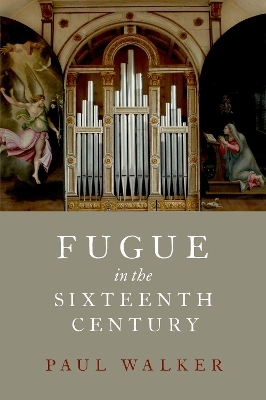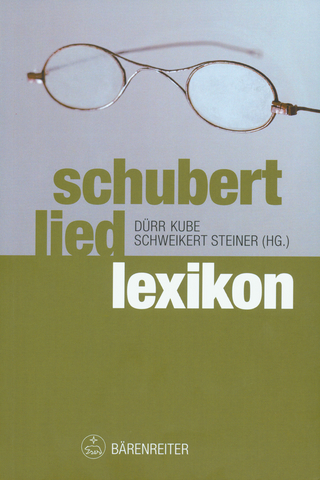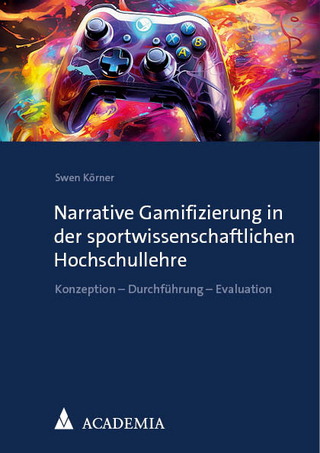
Fugue in the Sixteenth Century
Seiten
2021
Oxford University Press Inc (Verlag)
978-0-19-005619-3 (ISBN)
Oxford University Press Inc (Verlag)
978-0-19-005619-3 (ISBN)
Examining the roots of the classical fugue pre-Bach, Paul Walker's Fugue in the Sixteenth Century explores the three principal fugal genres of the period--motet, ricercar, and canonza--through musical examples and close analysis.
Examining the roots of the classical fugue and the early history of non-canonic fugal writing, Paul Walker's Fugue in the Sixteenth Century explores the three principal fugal genres of the period: motet, ricercar, and canonza. The volume treats each genre in turn, tracing the fugue's development throughout the century and highlighting important moments and trends along the way. Taking a two-tiered approach, Walker, on one level, examines fugue from the perspective of contemporary musicians, and on another level, takes into account fugue's later history and the elements that came to play a significant role in its formation.
Walker is the first scholar to successfully tie together the various strands of the "pre-Bach fugue" thanks to the growing availability of editions of the repertories involved. He also takes account of recent work elucidating the change in compositional approach around 1500 from a basis in cantus firmus and canon to one favoring non-canonical, fugal imitation. Featuring well-chosen musical examples to illustrate the compositional developments of the sixteenth century, Fugue in the Sixteenth Century is a definitive study for both specialist musicologists and organists and harpsichordists alike.
Examining the roots of the classical fugue and the early history of non-canonic fugal writing, Paul Walker's Fugue in the Sixteenth Century explores the three principal fugal genres of the period: motet, ricercar, and canonza. The volume treats each genre in turn, tracing the fugue's development throughout the century and highlighting important moments and trends along the way. Taking a two-tiered approach, Walker, on one level, examines fugue from the perspective of contemporary musicians, and on another level, takes into account fugue's later history and the elements that came to play a significant role in its formation.
Walker is the first scholar to successfully tie together the various strands of the "pre-Bach fugue" thanks to the growing availability of editions of the repertories involved. He also takes account of recent work elucidating the change in compositional approach around 1500 from a basis in cantus firmus and canon to one favoring non-canonical, fugal imitation. Featuring well-chosen musical examples to illustrate the compositional developments of the sixteenth century, Fugue in the Sixteenth Century is a definitive study for both specialist musicologists and organists and harpsichordists alike.
Paul Walker is Associate Professor of the Practice, Organ at University of Notre Dame. He is the author of Theories of Fugue from the Age of Josquin to the Age of Bach.
Acknowledgments
Introduction
Chapter 1: Fugue and Mode in the Sixteenth Century
Chapter 2: Fugue in the Renaissance Motet
Chapter 3: Ricercar and Fantasia in the Sixteenth Century
Chapter 4: The Fugal Canzona of the Late Sixteenth Century
Conclusion: Fugue's First Century
Glossary
Bibliography
| Erscheinungsdatum | 15.01.2021 |
|---|---|
| Zusatzinfo | 61 music examples |
| Verlagsort | New York |
| Sprache | englisch |
| Maße | 236 x 157 mm |
| Gewicht | 590 g |
| Themenwelt | Kunst / Musik / Theater ► Musik ► Allgemeines / Lexika |
| Kunst / Musik / Theater ► Musik ► Klassik / Oper / Musical | |
| Kunst / Musik / Theater ► Musik ► Musiktheorie / Musiklehre | |
| ISBN-10 | 0-19-005619-3 / 0190056193 |
| ISBN-13 | 978-0-19-005619-3 / 9780190056193 |
| Zustand | Neuware |
| Haben Sie eine Frage zum Produkt? |
Mehr entdecken
aus dem Bereich
aus dem Bereich
die Geschichte der Schallplatte
Buch | Hardcover (2024)
Prestel (Verlag)
36,00 €
Buch | Softcover (2024)
Nomos (Verlag)
29,00 €


